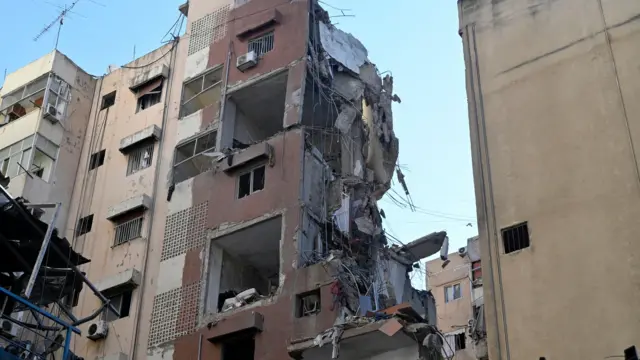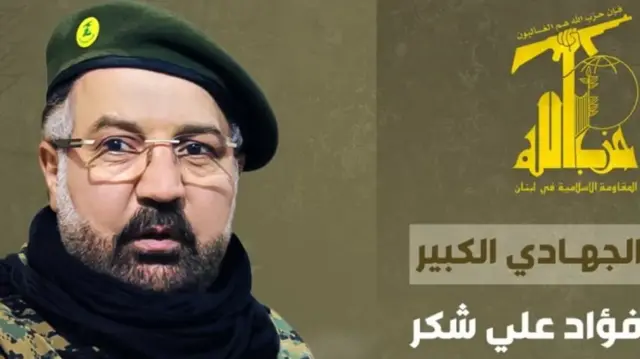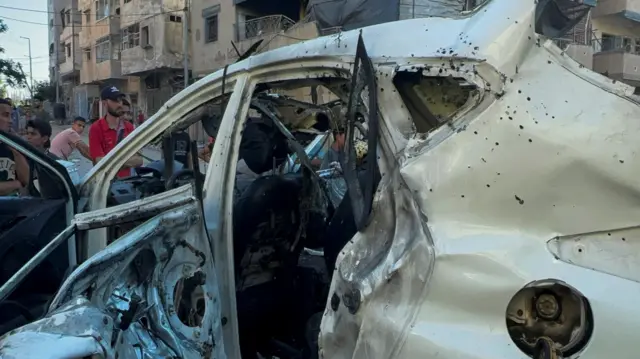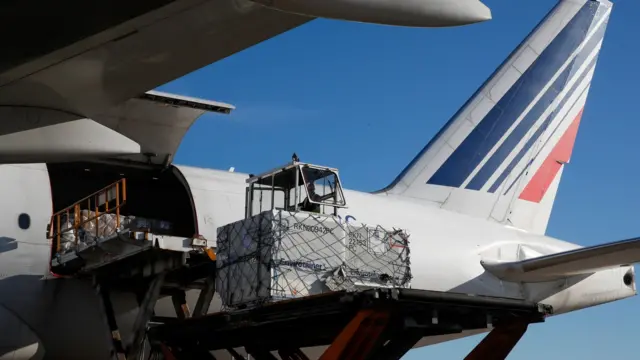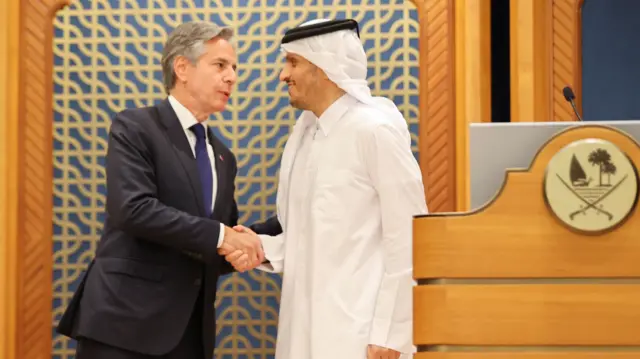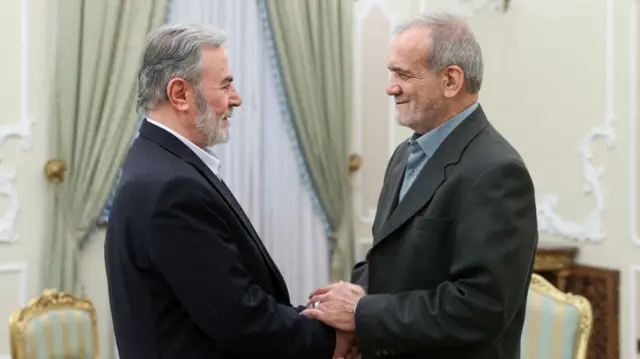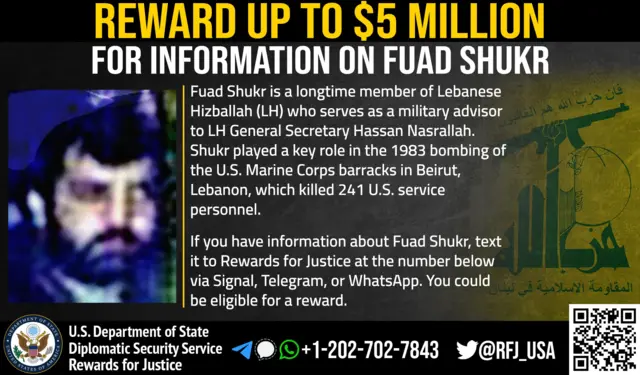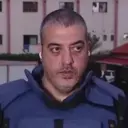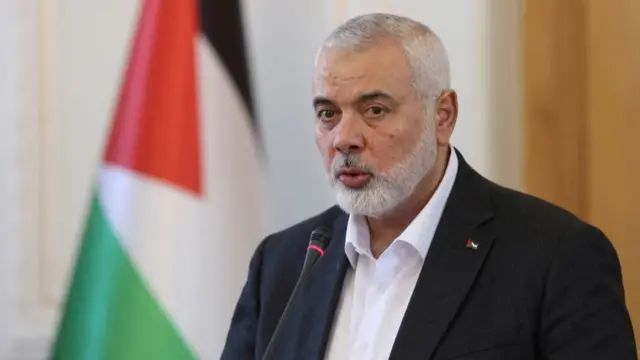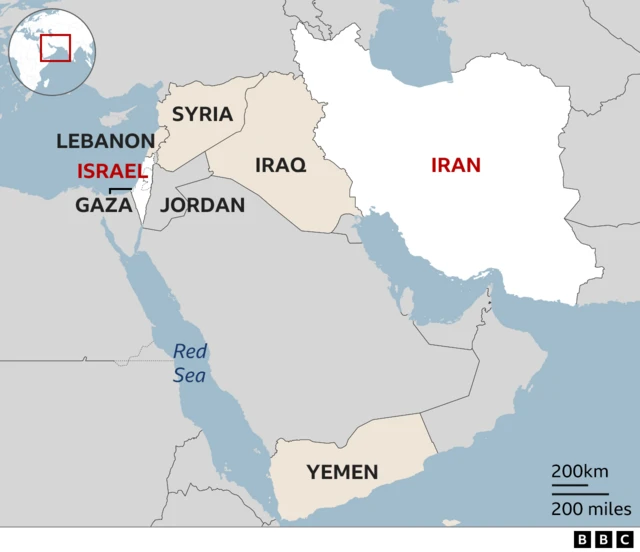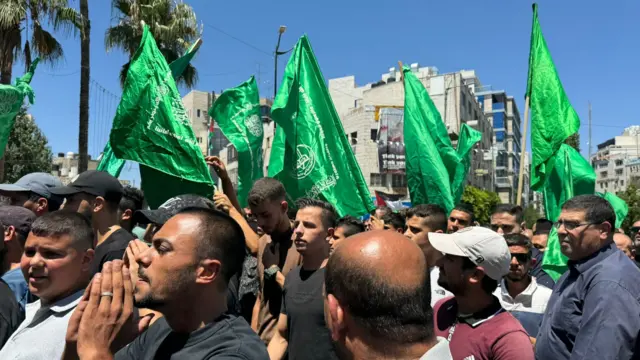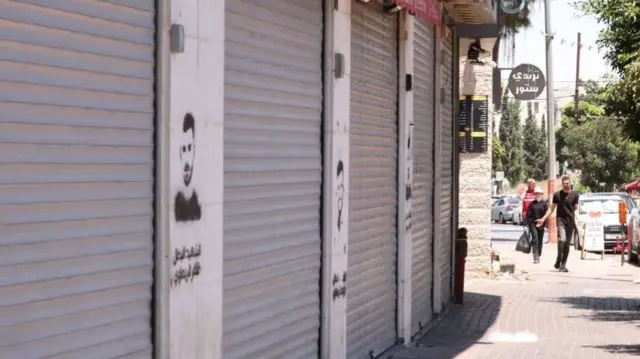
A response from Hezbollah is almost certainpublished at 19:03 BST 31 July 2024
 Hugo Bachega
Hugo Bachega
Middle East correspondent, in Beirut
Fuad Shukr is the most senior Hezbollah commander to have been assassinated by Israel in the current hostilities. He was killed in an Israeli attack that hit a building in a densely populated area of Beirut’s southern suburbs where Hezbollah has its base. Four other people were killed, including two children – the siblings Hassan, 10, and Amira, six.
The Israeli military described Shukr as a right-hand man to the Hezbollah leader Hassan Nasrallah, and someone who was involved in planning and directing operations against Israel.
A response from the heavily armed Iranian-supported group is almost certain. In the past, Hezbollah responded to the killings of senior members by firing barrages of rockets at Israel. Having a high-profile figure killed in its stronghold in Lebanon’s capital will likely be seen by the group as a provocation that merits a stronger response.
Shortly before the announcement that confirmed the killing, Israeli Prime Minister Benjamin Netanyahu gave a televised speech, and acknowledged that challenging days lie ahead - but that the country was prepared for any scenario.
In a recent speech, Nasrallah said Hezbollah did not want a war with Israel, but that it was ready for one. His group has an estimated 150,000 missiles and rockets, including precision guided missiles that can strike deep inside Israel. Hezbollah, Nasrallah added, had only used a fraction of its arsenal.
Nasrallah is expected to address supporters on Thursday.
